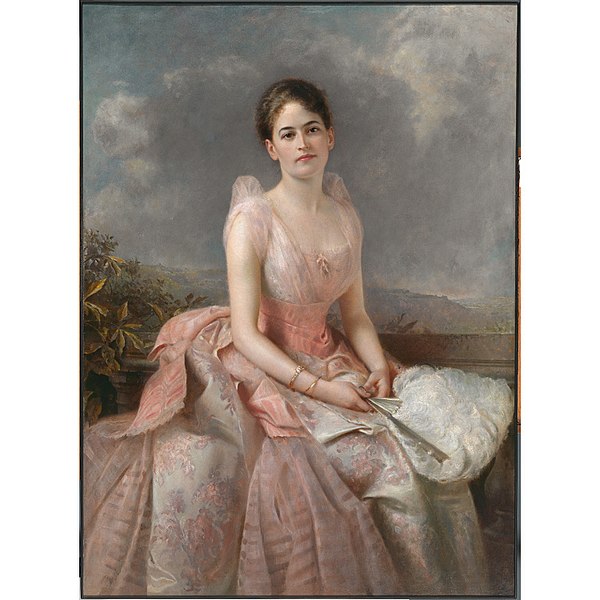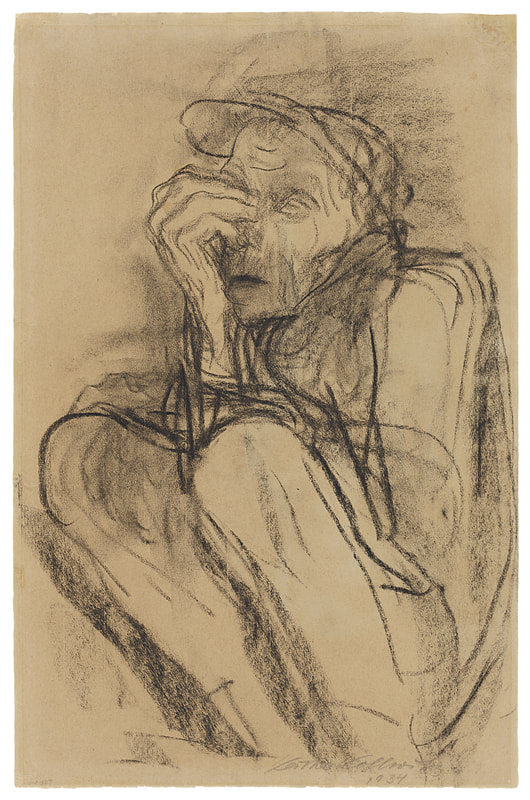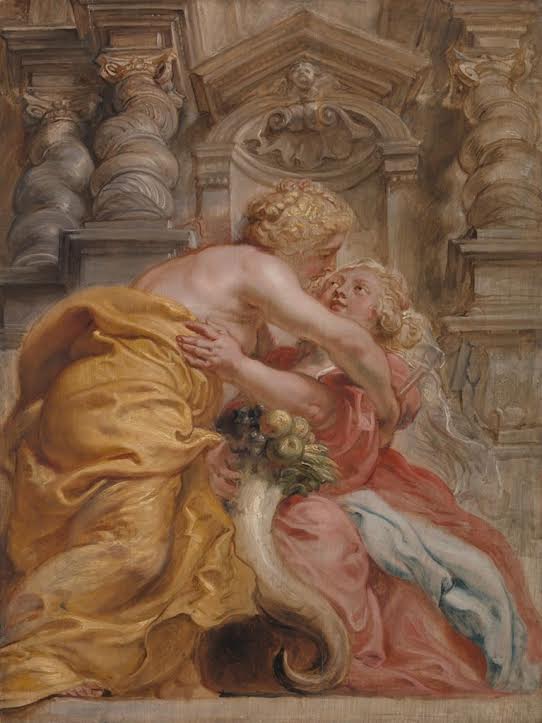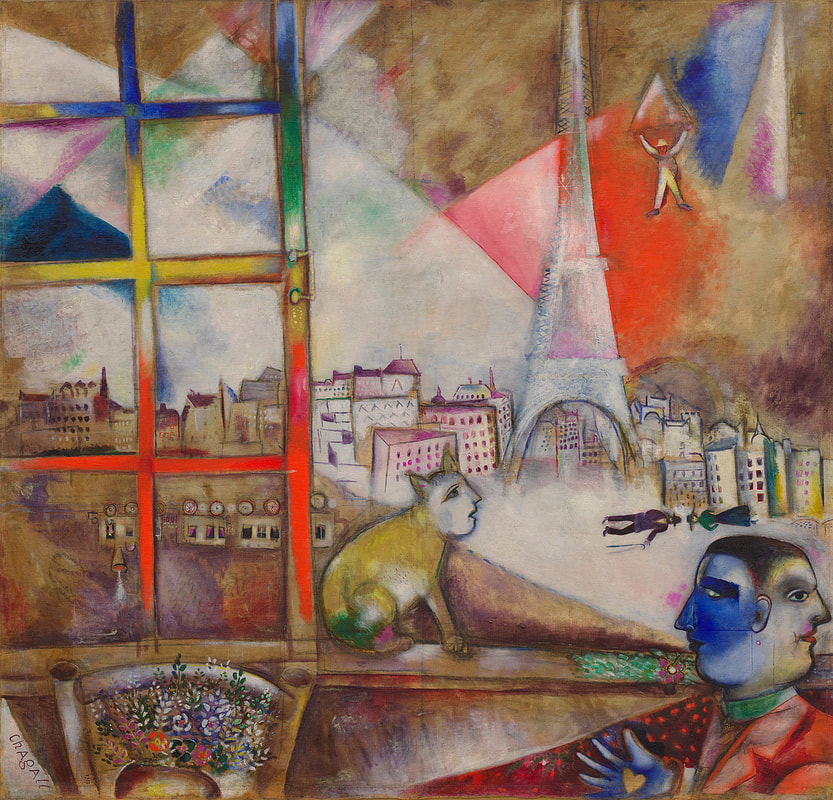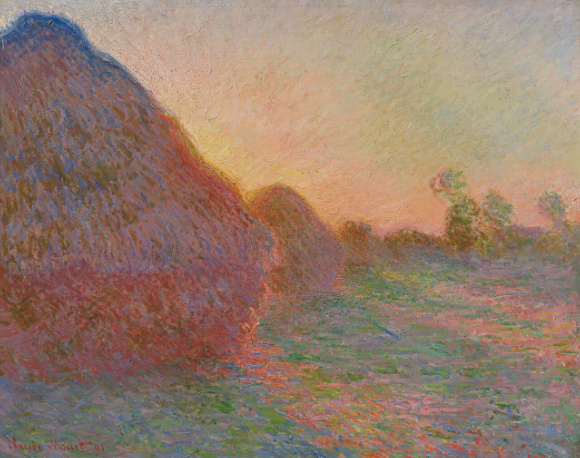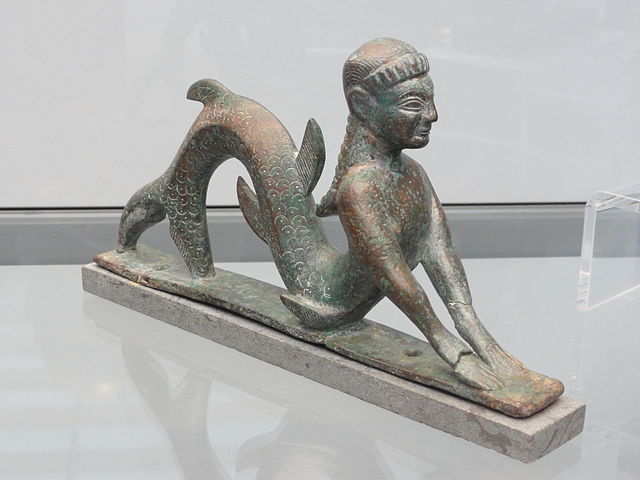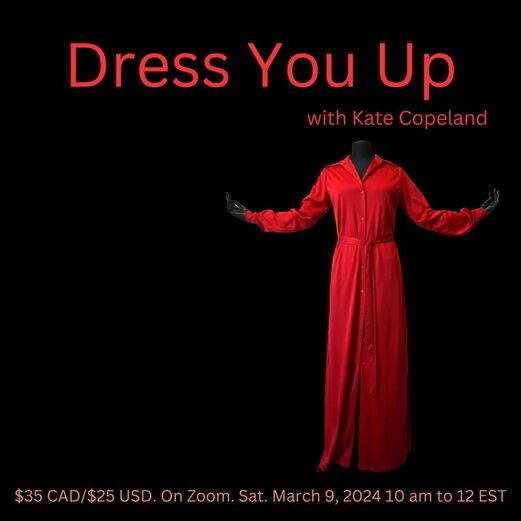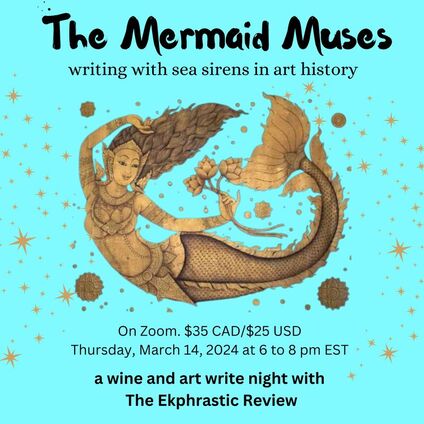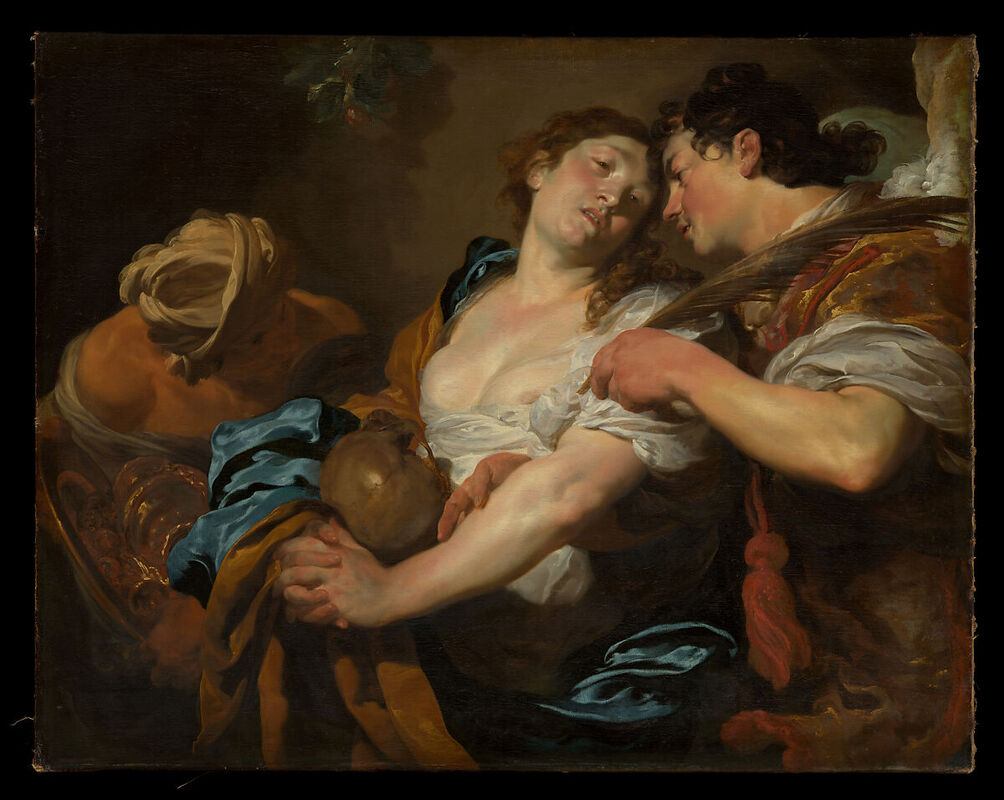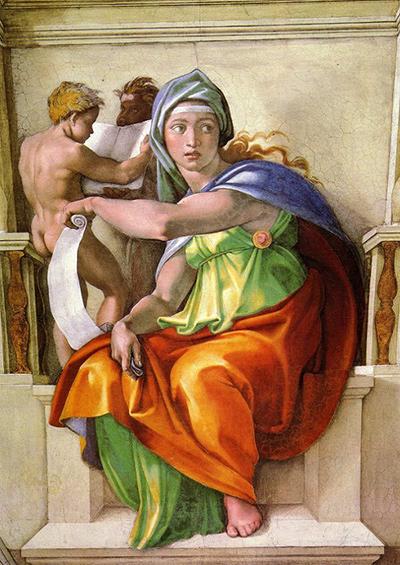|
On Seeing the Portrait of Juliette Gordon Low by Edward Hughes I expected you to arrive on the painted plane in brown or olive drab, booted and ready to take on the woods, pitch a tent, or produce a spyglass. Why then instead, do I see you painted in a pink cloud gown, reminiscent of Swan Lake or the Nutcracker, your graceful arms ready to round over your head, and toes, ready to relevée? Silly me, to not at once suppose there to be a hunting knife beneath your dress, affixed by a garter to your leg. Silly me, to suppose the handling of snakes and maps to be incompatible with twirling gracefully about the dance floor, to forget that to be strong is not just to be stout, especially when the willows have told us time and time again to bend is to be strong, that grace can hold the world like silk. Tamara Nicholl-Smith Tamara Nicholl-Smith is a poet and workshop leader living in Houston, TX. Her poetry has appeared on two Albuquerque city bus panels, one parking meter, various radio shows, a spoken-word techno classical piano fusion album, and in publications, such as: America, Ekstasis, The Examined Life Journal and Kyoto Journal. She recently completed her MFA in Creative Writing at the University of Saint Thomas (Houston). She likes puns and enjoys her bourbon neat. Find her at tamaranichollsmith.com.
0 Comments
Monologue Where has aspiration flown to? The cold penetrates my sole-worn shoes. I too am soul-worn. What to make of it? I know no one left living who hasn’t already deserted this throbbing world. The birds have abandoned the sky, grey with smoke, & there are no more trees to nest in & the water—where did it go when the brooks flowed with blood? It doesn’t ripple over river rock & it’s silent too. Thrumming silence. Except for the groan—that rumbling tone that tremors—a bass drum in my chest. The cold hurts the bones of my brain. I tried. I did. & none of it remains. Cathy Wittmeyer Cathy Wittmeyer hosts the Word to Action retreat in the Alps and edited the upcoming anthology: Eden is a Backyard: Climate poems from Word to Action from Eupolino Verlag. Her poems explore climate wreckage and human frailty. Her work has appeared in Isele Magazine, Superpresent, Tangled Locks Journal and Book of Matches among others. For more on this engineer/lawyer, mom and poet from Buffalo, NY, see https://cathywittmeyer.com A Modern Venus of Willendorf after Benefits Supervisor Sleeping, by Lucian Freud (Britain) 1995 Gorgeous fat stuffed in a love seat of puce roses -- sponge cake arm, pudding breast, custard belly with raisin garnish, derrière a round of brie, thighs buttered, foot a braided challah -- you, woman, are the soul alfresco, bulwark against the hard things. Anna Evas Alongside her poetry book Apocryphal (San Francisco Press), Anna Evas is published in a variety of literary journals, including The Ekphrastic Review. A recording pianist, she is an award-winning composer of concert level, contemporary classical music. Peace Embracing Plenty It’s not petit putti fighting on a celestial ceiling. Nor chubby babies in a round-the-crib romp. It’s Peace in Person in romantic embrace with Plenty, both curly-headed and pink but of different minds. Peace seems heavy, full-bottomed, mounting the charge. Plenty seems startled, dreamy, young—unaware of the promise of his cornucopia—horn overflowing with apples, figs, wild herbs. Peace looks away, to the inevitable, columns collapsing around her—flaccid. Thus, the worry in Plenty’s eye. Mike Lewis-Beck Mike Lewis-Beck writes from Iowa City, where he gardens in the summer and cooks in the winter. He has pieces in American Journal of Poetry, Apalachee Review, Aromatica Poetica, Black Bough, Columba, Cortland Review, Chariton Review, Ekphrastic Review, Guesthouse, Heavy Feather Review,, Inquisitive Eater, Pennine Platform, Seminary Ridge Review, Southword, and Wapsipinicon Almanac, among other venues. He has two books of poems, Rural Routes, and Shorter and Sweeter, published by Alexandria Quarterly Press. After Chagall’s Paris Through the Window Paris is askew. The Eiffel Tower extends beyond the painting. It’s glossed in a white light that emanates from a nearby pyramid. How can that be?—it’s not Egypt, not Mexico. A parachutist glides through a stormy sky. Where will it land in this city of steeples and narrow streets? Perhaps those are mountains in the shape of pyramids and the parachutist could glide, I suppose, to a mountain side. By his window, sits a two-sided Chagall, on one side a blue face cries pink tears, his other side, pale. He hints at the interior to his apartment: an empty chair; flowers arranged in a burnished pot, his window open to a dusky gold. On the window-sill, on its haunches, squats a cat. The cat’s face is similar to Chagall’s—big ears, sad eyes, sharp nose. Chagall plants himself nearby with claws instead of hands. The window must let in a breeze; electricity must charge the air. Chagall and his cat watch the sky. Greens. Pinks. Blues. Their ears perked up, a parachute falling from the sky; they must hear its flutter. And what is it about those two dark pedestrians? Who could they be, that man and women painted flat black? Although, she has a small swab of blue and the man a thin blue walking stick that doesn’t touch the ground, doesn’t support anything. Together they float in the dreamy space. Lower left, is an up-side down train. Does it chug backwards toward Vitebsk? A dark blue volcano blows pink smoke. Turned one way Paris is a lively sky, while in another turn there are nightmares, pogroms, longing, and a war that will soon shatter the world. Bill Caldwell Bill Caldwell and his husband enjoy life in Asheville N.C. Bill is a retired nurse and marriage and family therapist. He says he’s not a dessert person until he spies a scope of ice cream. He walks his dog Stella in the nearby mountains, tends his compost pile, plays in his yard planting plants and moving rocks. His poems have been heard on KAXE radio, and published in Artemis, Kakalak, and The Smokies Review. Lasting “Climate activists throw mashed potatoes at Monet work in Germany.” What a sight for visitors when Protesters, wearing their message or Orange caution vests, pushed aside Monet’s garden, his haystacks For their cause. They want us to know: It must be so! With boilerplate shouts, lectures, Mashed potatoes, glue, red paint They’ve come to save us. Last Generation they’re called And maybe that’s true – rage, Madness is prelude to the end But even as we’re leaving, Streets blackening from the sun, Monuments collapsing, Buildings challenged by coastal water, Monet’s garden and haystacks will Dance on dying eyes. William V. Ray William V. Ray is a retired English teacher who has also been a textbook editor, freelance writer, and, of late, a café owner. His published work includes textbooks as well as poetry and poetic prose. He is the editor of the online journal The Courtship of Winds <www.thecourtshipofwinds.org>. He lives outside Boston, Massachusetts. For more detail, please visit his page at LinkedIn: <https://www.linkedin.com/in/williamvray> The Mystery of Seafoam Every summer two men meet at an old beach bar twenty miles south of Lewes, Delaware. The bar sits at the end of an unmarked gravel road overlooking the steel gray Atlantic Ocean. It is decorated in the style of a Greek taverna: whitewashed walls, bistro tables, an orange awning that billows in the wind. The tile floor is embedded with tesserae and coquina in the shape of a mermaid. In earlier times the men approached one another with firm handshakes and a warm embrace. These days they nod, balance their canes against the wall, and ease gingerly into their seats. The place attracts an older crowd seeking to escape throngs of summer tourists who bend their arms for selfies and loom over glowing screens like hungry praying mantises. The service is bright, the drinks are cold, and no one is recording or photographing anything. For these reasons, the men meet here to talk over the Happening. It was some sixty years ago on a strand of beach not far from the bar. Twelve years old they were then, throwing a frisbee and wrestling in the water while their mothers kept loose watch from the deck of a rented bungalow. Pausing to lay down on their towels, the boys see an erratic line of iridescent discs strewn with seaweed and tiny shells. They were scales, weren’t they? Following the trail, they find a mermaid lying face up in the shallow fan of a distant sandbar: sea kelp mane, yellow eyes, arms akimbo, angry mouth gaping air for water. The mottled tail thrashes back and forth as it tries to propel itself toward the ocean. The tide must have receded quickly that night. The mermaid is longer than the boys are tall. Still, they manage to gather it up by the torso and tail, mindful to not snap any scales or bruise the soft, translucent belly. Transporting the writhing creature back into the ocean is arduous, requiring concentration, rhythm of step and breath. They move as one body, wild and vulnerable. The smell, do you remember the smell? Salt, and cinnamon. And so strong. Sharp fins, cut me right here. Standing thigh-deep in eddies of ocean, the boys ease the mermaid into the water, watching it twist and roll until it recognizes home within cascades of waves that carry it out to sea: their rescue, engulfed in the mystery of seafoam. The moment seems to last forever and end with the breeze. Did it happen? We were so young. One man is an emeritus professor of classics; the other, a retired priest who still receives bedside confessions. They meet at the old beach bar to speak the story aloud, pulling the mermaid from the penumbral shadow of time. They have kept their pact through the decades, protecting one another from incredulity, laughter, ridicule. Momentarily, their conversation turns to the present. A wife is ill, a sister lives in Florida, a son has a new job, a nephew is taking to drawing dinosaurs. Eventually, they return to the story they share, though it drifts further every year, impossible to capture, like the horizon. All that remains is memory, and mystery: tiny rows of opaline demi-circles around their ankles and thighs that increase with each passing year. The men sip their beers, looking out at the unknowable, elusive place where sea meets sky. The professor shakes his head; the priest’s eyes brim with watery longing. Through the years and thrum of daily life, beyond the joys and sorrows, they remain certain of only one thing: there has been nothing, nothing like it, since. Cheryl Sadowski Cheryl Sadowski writes primarily about art, books, landscape, and nature. She is particularly drawn to time, memory, patterns in nature, and the ineffable veil between our world and others. Her writing has appeared in After the Art, Vita Poetica, About Place Journal, and other publications. She returned to school in her fifties to complete a Master's in Liberal Arts from Johns Hopkins University. cherylsadowski.com. We are thrilled about this upcoming workshop with Ekphrastic editor Kate Copeland, on fashion in art and the writing world. We also have a wine and art night with mermaids, and a whirlwind tour of Frida's world. Join us! Sign up below. Dress You Up, Zoom Workshop with Kate Copeland
CA$35.00
Join us on Zoom on Saturday, March 9 from 10 am to noon eastern standard time, for a survey and discussion about fashion and its underlying subtexts and meanings that make their way into our poetry and stories. Ekphrastic editor Kate Copeland will take us on a fashionable tour of art and clothing, with time to write our own artistic exploration of appearances. Weaving through personal and cultural meanings we attach to clothing, Kate will touch on poetry, research, linguistics, and Anne Sexton's iconic red reading dress. Lorette will show us a brief survey of fashion in art history. Virginia Woolf would sign off her invitation with "bring no clothes," but we invite you to dress up or bring your favourite garment, to inspire your own poem or story. The Mermaid Muses: writing with sea sirens in art history
CA$35.00
Join us for a deep sea dive into the story of mermaids in the visual arts. We will look at a variety of mermaid art and use it to inspire our own nostalgia, fantasy, and mythology. Thursday, March 14 from 6 to 8 pm. A wine and art write night! Bring your favourite wine (or a cup of tea) and we will relax together, look at amazing art, and get some ideas down for our poetry and stories. Frida's World: Mexico's Art Story
CA$35.00
Join us to explore the incredible story of Mexico's art history. It will be a whirlwind tour through time. Frida Kahlo was passionate about pre-Columbian artefacts and her husband was considered the master artist of Mexico. The couple were surrounded by art stars and brilliant creatives. Of course, Frida became the most beloved artist and icon. We will look at a wide variety of visual art through time. This session will focus on looking at and talking about visual art rather than on writing exercises, but writers will find a wealth of inspiration to be mined for their poetry and stories later. Where All Choice Leads Of all the books I read in high school—the books assigned and studied—one has stayed with me: Wharton’s slim, sad tale of crippled Ethan Frome and his mistake and how he ruined three lives when pinched between desire and duty. Two decades on and that book still shifts back and forth in the satchel of my brain like the pair of curved cuticle scissors forgotten at the bottom of my purse until I prick myself on their point while digging for my keys. Still there my righteous anger at Ethan for betraying the awful Zeena and my own stupid desire for his escape to love with poor, dumb Mattie. And last week, of all the paintings at The Met, The Temptation of Saint Mary Magdalen has moved into my head with Ethan for it shows me, the secret me I’d rather not acknowledge or confront, the me caught between two choices and looking dumb and, maybe, drugged or drunk, my eyes lidded, nearly closed, my cheeks and that triangle at the base of my throat (the start of my breastbone) flushed red (with drink or passion), my breasts (or Mary’s) very nearly bare (more than half of one nipple exposed). Two figures—two men—one before me, one behind—compete for me. I look back at one richly robed and brightly lit, my head tipped back in surrender. As he looks down at me (or Mary), he wears a candied look, has both his hands on my arm and near my breast, both hands red, this man caught red-handed. He looks to me like temptation, desire embodied, but the museum placard says he is angel meant to save me from the other man with face obscured in shadows, hidden, his shoulders bare and powerful. This second man does not touch me, scarcely looks at me. He holds and might be offering a platter of gold or dirty dishes and leftover food scraps and looks not too unlike my husband after dinner party I slaved to host. And I (or Mary in this painting), we hold a human skull—symbol of death, of rot and decay, of fatal mistake?—the white bone browned by dirt. Either way. It’s a story as old as art. Cecil Morris Cecil Morris retired after 37 years of teaching high school English in California. Now he tries writing himself what he spent so many years teaching others to understand and (he hopes) to enjoy. He and his patient partner, the mother of their children, divide their year between the increasingly arid Central Valley of California and the cool Oregon Coast. He has poems appearing or forthcoming in Hole in the Head Review, New Verse News, Rust + Moth, Sugar House Review, Willawaw Journal, and elsewhere. The Sibyl at Delphi Invites the Reader Not to boast—but Michelangelo chose five of our sisterhood to hold court above your mortal gaze. Swathed in a dazzle of tangerine, delicado green of spring, sky-summer blue, I swivel on my Sistine-ceiling stool to deter the paparazzi -- those People gossip-hounds would howl to snatch a glance at my prophecies, my exclusive interviews. But for you, dear reader, I unroll this scroll of truths and gossips. Fair warning—whispered words within might shock, so counter to Dame Edith’s classic spin. Each groan, each wail, every (self-serving) tale a clutch of sibilants and schemes and sobs, straight to you from lips of gods and humans. But hold! You think it’s all ecstasy and oleander smoked to spark our hisses, our birth-and-death reveals, the raves that swerve heroine and hero onward or astray? No, by Athena, it’s our haunting, our ace reporting, our mythic ESP. By night we fan out on our beats, Greece and east, dogging every soul or body that might pique appetite or curiosity—whatever we can garner to testify (terrify)-- then slip our sylph-selves home to dally at the fumaroles by dawn. Enough! Here’s proof in ink—their skirmishes, their unvarnished blurts, the scoops on their temptations. To the wise or the credulous—beware. As our favourite diva boasts: We lie sweet and well. Like the Truth. Like Art. Like Hell. Judith H. Montgomery Judith H. Montgomery’s poems appear in the Comstock Review, Poet Lore, and Epiphany, among other journals. Her first collection, Passion, received the Oregon Book Award for Poetry. Her second full-length collection, Litany for Wound and Bloom, appeared in 2018. Her prize-winning narrative medicine chapbook, Mercy, appeared from Wolf Ridge Press in 2019. More recently, her poem “Never” received third place in the Gregory O’Donoghue International Poetry Competition. Her poetry is fueled by chocolate, and she counteracts rejection by weeding her garden. |
The Ekphrastic Review
COOKIES/PRIVACY
This site uses cookies to deliver your best navigation experience this time and next. Continuing here means you consent to cookies. Thank you. Join us on Facebook:
Tickled Pink Contest
April 2024
|
